EdTech companies are at the forefront of modern education, leveraging advanced technologies to create engaging, accessible, and personalized learning experiences. By integrating tools like AI, VR, and real-time analytics, these innovators are reshaping classrooms, training programs, and self-paced courses for learners of all ages.
Table Of Contents
- 1Introduction
- 2The Edtech Revolution: From Traditional Learning to Digital Transformation
- 3Key Ways EdTech is Transforming Learning
- 4The Future of Edtech
- 5How EdTech Companies Are Transforming Learning
- 6Types of EdTech Companies
- 7Leading EdTech Companies Shaping the Future of Education
- 8Major EdTech Unicorns Changing Education
- 9Essential Criteria for Choosing Top EdTech Companies
- 10Challenges Faced by EdTech Companies
- 11Future Outlook of EdTech Companies
- 12Conclusion
Introduction
The global education technology market is growing at a record pace, fueled by constant innovation and the need for accessible, high-quality learning. Valued at USD 215.14 billion in 2024, it is expected to reach USD 252.45 billion in 2025 and an impressive USD 773.06 billion by 2033, with a CAGR of 17.34%.
In the U.S. alone, revenue from online education is projected to hit $99.84 billion by the end of 2025. This rapid growth shows how EdTech companies are transforming education—breaking distance barriers, offering personalized learning, and equipping students and professionals with powerful tools. Whether it’s a global giant or an emerging edutech company, these innovators are shaping the future of education.
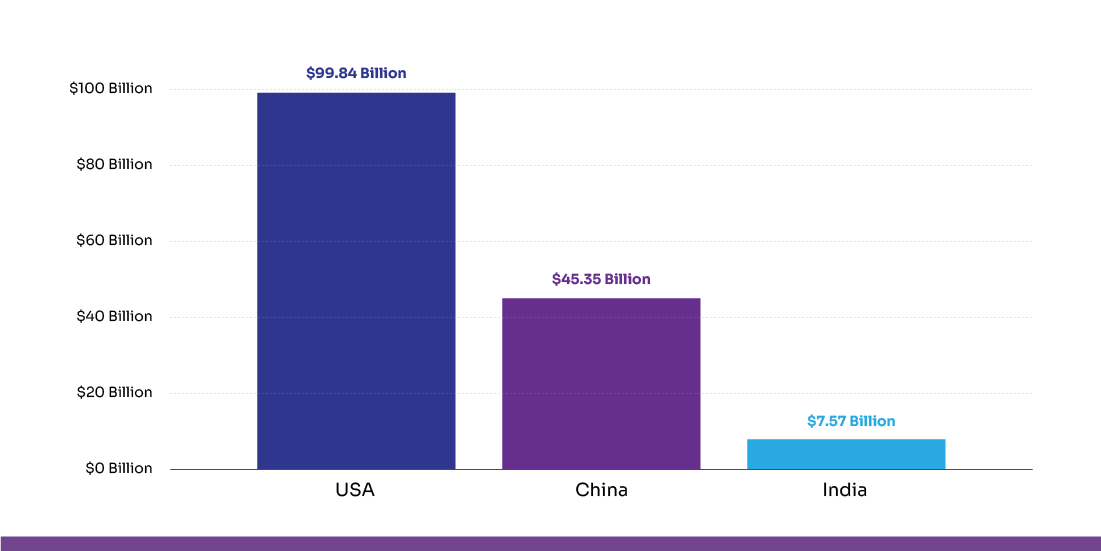
The Edtech Revolution: From Traditional Learning to Digital Transformation
The rise of EdTech companies has gone far beyond simply enhancing traditional learning—it has redefined the very nature of education. Digital learning platforms have made knowledge accessible to learners across the globe, removing geographical limitations and creating opportunities for anyone, anywhere.
Students in remote areas, individuals with physical or learning challenges, and busy professionals can now access high-quality education without stepping out of their homes or workplaces.
Key Ways EdTech is Transforming Learning
Breaking Geographical Barriers
Digital platforms have eliminated the limitations of location by enabling global access to education. Learners can connect with educators from anywhere in the world, participate in virtual classrooms, and access a vast range of international courses and resources. This global connectivity ensures equal opportunities for knowledge acquisition, regardless of a learner’s physical location.
Innovative Teaching Methodologies
The integration of technology into education has introduced highly engaging and immersive teaching tools such as interactive simulations, gamified learning modules, and virtual reality classrooms. These methods not only make learning more interactive but also improve knowledge retention. In fact, 51% of teachers have reported using AI-powered educational games to enhance student engagement.
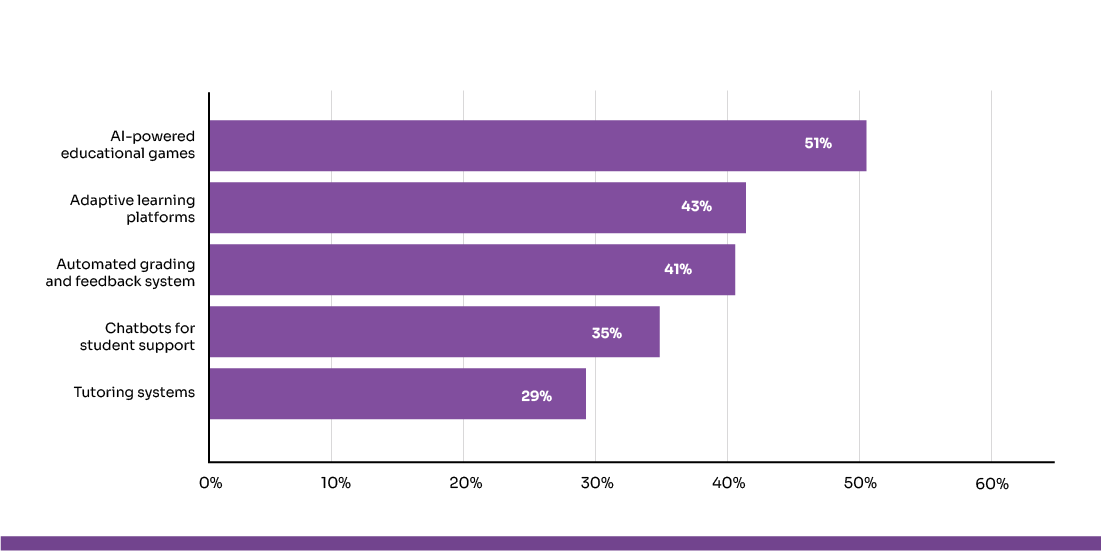
Personalized Learning for Diverse Styles
Digital learning tools adapt to the needs of different learners—whether visual, auditory, or kinesthetic—ensuring that teaching methods are more inclusive. AI-driven personalized learning platforms can assess student progress and tailor content accordingly, making education more effective. Over the past three years, the use of AI-driven personalized learning tools in educational institutions has increased by 60%.
Empowering Students and Professionals
EdTech provides on-demand, flexible access to educational materials, allowing learners to study at their own pace. This flexibility is particularly valuable for working professionals seeking to balance education with career and personal commitments. According to recent surveys, over 70% of adult learners now prefer online courses for upskilling and career advancement.
Reshaping the Workforce
By promoting continuous skill development, EdTech plays a pivotal role in upskilling and reskilling the workforce to meet evolving industry demands. According to the World Economic Forum, 58% of employees believe their job skills will undergo significant changes in the next five years due to the growing influence of AI and big data.
The Future of Edtech
As technology continues to advance, the potential of Edtech to enhance learning experiences and unlock human potential remains limitless. The revolution is not just changing how we learn — it’s redefining what it means to be educated in the 21st century.
How EdTech Companies Are Transforming Learning
Traditional education, which relied heavily on physical classrooms, fixed schedules, and uniform teaching methods, often failed to meet the diverse needs of learners. Students were largely dependent on textbooks and lectures, progressing at the same pace regardless of their individual abilities.
Personalized Learning Paths
Modern platforms use adaptive algorithms to tailor educational content to each learner’s unique skill level and objectives. This personalized approach enables students to progress at their own pace, improving engagement and academic success. Research shows that personalized learning increases attendance rates by 12% and reduces dropout rates by 15%.
Real-Time Data Insights
With the integration of data analytics, educators gain immediate access to student performance metrics. This real-time feedback allows teachers to modify lesson plans, provide targeted interventions, and make informed decisions to enhance learning outcomes. Educators utilizing these analytics report saving an average of 5.4 hours per week on grading and monitoring tasks, which has contributed to a 42% increase in personalized coaching and a 37% improvement in lesson quality.
Interactive and Engaging Content
EdTech innovations such as simulations, virtual labs, and gamified learning elements transform traditional lessons into immersive experiences. These interactive tools promote active participation and improve motivation. Studies indicate that platforms incorporating gamification techniques like leaderboards and automated rewards have achieved a 50% increase in learner engagement, alongside enhanced knowledge retention and collaborative skills.
Flexible Learning Schedules
The availability of on-demand and self-paced courses provides learners with the flexibility to study at times that fit their personal and professional commitments. This flexibility is particularly advantageous for working adults and students managing busy schedules. Surveys reveal that over 80% of online learners consider flexible scheduling a primary benefit of digital education.
Collaborative Digital Tools
Online forums, shared workspaces, and virtual group projects enable students and experts from around the world to connect and collaborate. These tools foster teamwork, encourage knowledge sharing, and support cross-cultural learning. According to a McKinsey survey, 70% of educators observed increased student motivation and engagement when using adaptive learning technologies.
Smarter Resource Management
EdTech platforms make school tasks like enrollment, managing courses, and grading easier by handling them online. This reduces the need for paper and physical books, saving time and money for both schools and students.
Who Benefits from Implementing an Online Learning Platform?
Online learning platforms powered by EdTech are transforming education and training across various sectors. Here’s how different types of organizations benefit from these solutions:
K-12 Schools
Digital platforms empower K-12 students to work at their own pace while highlighting where they may be struggling. Teachers gain access to real-time dashboards tracking progress, enabling personalized support. Impressively, 65% of K-12 teachers use digital learning tools daily, and 25% of them report improved student outcomes thanks to eLearning resources.
Colleges and Universities
Colleges use online platforms to give students practical learning experiences. For example, business students can practice trading in virtual markets without real money, and engineering students can test designs using computer simulations. These tools help students learn by doing before entering the workforce. Moreover, 98% of universities now offer online courses, demonstrating broad adaptation of digital education.
Businesses
Companies use online learning to train employees anytime and anywhere. Features like badges and leaderboards make learning fun and help employees remember what they learn. These platforms reduce training time by 40–60%, cut costs by 50–70%, and retain talent—94% of employees are more likely to stay with a company that invests in their learning.
Nonprofits
Nonprofit groups use online courses and mobile apps to bring education to people in remote or low-income areas. These tools help overcome distance and financial challenges, giving more people the chance to learn new skills for jobs or personal growth.
Types of EdTech Companies
EdTech companies vary widely because they serve different learning goals, audiences, and subjects. Here are seven main types of EdTech platforms, grouped by their features and the educational needs they meet:
Learning Management Systems (LMS)
LMS platforms help organizations manage and deliver online learning. They are used in schools, universities, businesses, and professional training programs. LMS tools organize courses, automate training, support collaboration, and track learner progress, making education easier to manage and more effective.
Virtual Classrooms
Virtual classrooms use video calls, interactive whiteboards, and collaboration tools to connect teachers and students in real time. They let people join live lessons and group activities from anywhere, simulating the traditional classroom experience online. These platforms became very popular during the COVID-19 pandemic and remain widely used today.
Educational Content Providers
These platforms offer a wide range of online courses and programs from various providers. Learners can enroll in classes, often from top universities or experts, and sometimes earn official certificates or degrees—all from home. Popular examples include marketplaces like Coursera.
Assessment Tools
Assessment platforms help teachers create, deliver, and grade tests and quizzes automatically. This saves time and gives immediate feedback to students. These tools also provide detailed reports on student performance, helping educators identify strengths and areas for improvement.
Language Learning Platforms
These apps and websites focus on teaching new languages through interactive lessons, games, and practice with AI chatbots or other learners. They include exercises like flashcards, speaking practice, and quizzes to keep learners engaged.
Tutoring and Mentorship Services
Tutoring platforms connect students with qualified tutors who provide personalized help in specific subjects. Tutors guide students through difficult topics, help with exam prep, and offer one-on-one lessons tailored to each learner’s needs.
STEM and Coding Education Platforms
These platforms teach science, technology, engineering, math, and programming through hands-on projects and coding exercises. With growing interest in tech careers, these EdTech tools help students build important skills for future jobs in STEM fields.
Leading EdTech Companies Shaping the Future of Education
The education technology industry is growing fast, led by innovative organizations that are changing the way people learn across the globe. These top edtech companies provide a range of platforms and tools for students, teachers, and professionals—making learning more accessible, engaging, and personalized. Here’s a list of edtech companies that are making a significant impact on education.
Udemy
Founded: 2010
Location: San Francisco, California
Overview:
Udemy is a global online learning platform offering thousands of courses in multiple languages. It caters to individuals seeking personal development, professional skills, and corporate learning solutions. Topics range from photography and business to programming and design.
Features:
- 200,000+ courses in 75+ languages
- Lifetime access to purchased courses
- Udemy Business for organizations
- Mobile learning via app
- Certificates of completion
Pros:
- Affordable and frequent discounts
- Huge variety of topics
- Accessible from anywhere
- Courses taught by industry experts
Cons:
- Quality varies between courses
- Certificates not always recognized by employers
MasterClass
Founded: 2015
Location: San Francisco, California
Overview:
MasterClass offers online courses taught by world-renowned experts, celebrities, and industry leaders. Subjects include writing, cooking, sports, filmmaking, and more, with instructors like Stephen Curry and Gordon Ramsay.
Features:
- High-quality video production
- Lessons from global experts
- Wide range of creative and professional topics
- Downloadable course materials
Pros:
- Engaging, visually appealing content
- Learn directly from top names in industries
- New classes added regularly
Cons:
- No certificates of completion
- Less hands-on practice compared to skill-based platforms
Duolingo
Founded: 2011
Location: Pittsburgh, Pennsylvania
Overview:
Duolingo is a gamified language-learning platform offering 40+ languages, from Spanish to Esperanto. It uses AI and machine learning to personalize lessons for each learner.
Features:
- Bite-sized lessons with gamified rewards
- Speaking, listening, reading, and writing exercises
- AI-driven adaptive learning
- Free version with ads; premium subscription available
Pros:
- Free to use with optional upgrade
- Fun and engaging approach
- Tracks progress and streaks
Cons:
- Limited grammar depth in free version
- Ads in free tier can be distracting
360Learning
Founded: 2013
Location: New York, New York
Overview:
360Learning helps companies create, distribute, and track online learning programs for employee onboarding, compliance training, and sales enablement.
Features:
- Collaborative learning tools
- AI-powered course creation
- Question generator and writing assistant
- Performance tracking and analytics
Pros:
- Encourages team knowledge-sharing
- Easy course creation
- Integrates with existing tools
Cons:
- Best suited for corporate training, not individuals
- May require onboarding to use advanced features
McGraw Hill
Founded: 1888
Location: New York, New York
Overview:
McGraw Hill is a major educational publisher that has transitioned from traditional textbooks to digital learning tools, including ebooks and its Connect platform for teachers and students.
Features:
- Digital textbooks and online assignments
- LMS integration via Connect
- Mobile-friendly resources
- Teacher tools for tracking progress
Pros:
- Trusted, long-standing brand in education
- Comprehensive subject coverage
- Widely adopted by schools and universities
Cons:
- Less affordable for individual learners
- Focused more on formal education settings
Rosetta Stone
Founded: 1992
Location: Arlington, Virginia
Overview:
Rosetta Stone provides language-learning software for individuals, schools, and businesses, using immersive teaching methods and real-life scenarios.
Features:
- 25+ languages offered
- Live coaching with native speakers
- Listening, speaking, and writing exercises
- Speech recognition technology
Pros:
- Well-structured language programs
- Immersive learning experience
- Mobile and desktop compatibility
Cons:
- Premium pricing compared to competitors
- Can feel repetitive for advanced learners
Udacity
Founded: 2011
Location: Fully Remote
Overview:
Udacity offers Nanodegree programs in in-demand fields like AI, data science, cloud computing, and cybersecurity. It focuses on career readiness for tech jobs.
Features:
- Project-based learning
- Industry partnerships (Google, AWS, etc.)
- Personalized mentor support
- Career services for students
Pros:
- High-quality tech-focused content
- Strong industry connections
- Practical, job-ready skills
Cons:
- Higher cost than many platforms
- Limited non-technical course offerings
ReUp Education
Founded: 2015
Location: Austin, Texas
Overview:
ReUp Education specializes in helping nontraditional students re-enroll in college and complete their degrees. It partners with institutions to provide guidance and support.
Features:
- Re-enrollment support
- Credit transfer assistance
- Financial aid guidance
- Personalized student outreach
Pros:
- Focused on underserved student groups
- Partnerships with universities nationwide
- Strong administrative support
Cons:
- Limited to partnered institutions
- Not a direct course provider
HopSkipDrive
Founded: 2014
Location: Los Angeles, California
Overview:
HopSkipDrive offers safe, vetted transportation solutions for schools and districts, catering to small groups of children.
Features:
- Network of background-checked drivers
- Route planning for school transportation
- Advisory services for districts
Pros:
- Safety-focused operations
- Flexible transportation solutions
- Supports special student needs
Cons:
- Limited to certain geographic areas
- Not a direct educational provider
Academia.edu
Founded: 2008
Location: San Francisco, California
Overview:
Academia.edu is a free platform where researchers share academic papers and connect with other scholars worldwide.
Features:
- Profile creation for researchers
- Open access to papers
- Networking with academics globally
Pros:
- Free access to research papers
- Promotes academic networking
- Bypasses traditional journal paywalls
Cons:
- Not peer-reviewed like academic journals
- Some features locked behind subscription
Teachable
Founded: 2014
Location: New York, New York
Overview:
Teachable empowers creators to build and sell online courses, coaching programs, and memberships. It serves educators, influencers, and entrepreneurs seeking to monetize their knowledge.
Features:
- Drag-and-drop course builder
- Integrated payment gateway
- Membership and subscription options
- Student progress tracking
Pros:
- Easy-to-use platform
- No coding required
- Good monetization options for creators
Cons:
- Transaction fees on lower plans
- Limited marketing tools without integrations
Zearn
Founded: 2012
Location: New York, New York
Overview:
Zearn is a nonprofit math-learning platform that supports K–8 curriculum, combining classroom teaching with interactive digital lessons.
Features:
- Over 800 math lessons
- Real-time feedback for students
- Teacher progress reports
- Professional development resources
Pros:
- Blends classroom and online learning
- Free for individual students and teachers
- Focus on foundational math skills
Cons:
- Limited to math subjects
- Best suited for school use, not self-learners
Ellevation Education
Founded: 2011
Location: Boston, Massachusetts
Overview:
Ellevation Education provides comprehensive support for educators working with English Language Learners (ELLs) by offering a suite of specialized tools designed to enhance collaboration, streamline student progress tracking, and simplify program management.
Features:
- Student progress monitoring
- Professional development tools
- Compliance and reporting support
Pros:
- Designed by ELL educators
- Addresses program management challenges
- Strong collaborative features
Cons:
- Niche focus on ELL students only
- Requires institutional adoption
Aceable
Founded: 2012
Location: Austin, Texas
Overview:
Aceable provides app-based driver’s education and certification courses designed to replace traditional in-person training. Their platform offers interactive online lessons that allow learners to study at their own pace, accessible anytime and anywhere through smartphones or tablets.
Features:
- Mobile-friendly driver’s ed courses
- Practice tests and simulations
- Certification through the app
Pros:
- Learn anytime, anywhere
- Affordable compared to traditional classes
- Engaging, interactive content
Cons:
- Limited subject offerings beyond driving
- Not available in all states
New Visions for Public Schools
Founded: 1989
Location: New York, New York
Overview:
New Visions is a nonprofit organization dedicated to enhancing public education in New York City. It focuses on improving student outcomes by supporting and managing a network of high-quality charter schools, collaborating closely with public school districts, and providing comprehensive training and professional development programs for educators.
Features:
- Curriculum development
- Teacher certification programs
- Student-centered learning environments
Pros:
- Long-standing commitment to underserved communities
- Holistic support for teachers and students
Cons:
- Focused only on New York schools
- Limited online learning presence
Coursera
Founded: 2012
Location: Fully Remote
Overview:
Coursera collaborates with top universities and leading companies worldwide to provide a wide range of online learning opportunities. These include individual courses, professional certificates, and full degree programs across diverse fields such as technology, business, arts, and science.
Features:
- 5,000+ courses and specializations
- Accredited degrees and professional certificates
- Mobile learning support
Pros:
- High-quality content from top institutions
- Certificates recognized by employers
- Financial aid available
Cons:
- Subscription required for most certificates
- Less personalized than smaller platforms
Course Hero
Founded: 2006
Location: Redwood City, California
Overview:
Course Hero is an online study platform that offers a wide range of academic resources tailored to specific courses. It provides students with access to course-specific study materials such as lecture notes, practice problems, and study guides.
Features:
- 100M+ study resources
- 24/7 expert tutoring
- Textbook solutions and explanations
Pros:
- Comprehensive academic library
- Supports multiple subjects and levels
Cons:
- Subscription required for full access
- Content quality varies
Blueprint Test Prep
Founded: 2005
Location: Fully Remote
Overview:
Blueprint is a leading test preparation company specializing in LSAT and MCAT exams. Using interactive lessons, adaptive practice tools, and detailed analytics, Blueprint tailors study plans to each individual’s strengths and weaknesses, ensuring efficient and effective preparation for these competitive exams.
Features:
- Live and self-paced courses
- AI-powered analytics
- Private tutoring options
Pros:
- Strong focus on test prep success
- Engaging teaching methods
Cons:
- Higher pricing than some competitors
- Limited to LSAT/MCAT
Great Minds
Founded: 2007
Location: Washington, D.C.
Overview:
Great Minds specializes in developing comprehensive curricula for core subjects such as mathematics and English. Their approach focuses on integrating real-world contexts and practical applications into lessons, helping students connect academic concepts with everyday life.
Features:
- Content-rich programs
- Teacher professional development
- Curriculum for multiple subjects
Pros:
- Deep, concept-based learning
- Strong teacher support
Cons:
- Primarily for school use
- Requires institutional adoption
TPT (Teachers Pay Teachers)
Founded: 2006
Location: Fully Remote
Overview:
TPT (Teachers Pay Teachers) is a popular online marketplace that connects educators by allowing them to buy, sell, and share high-quality lesson plans, worksheets, classroom activities, and other teaching resources.
Features:
- Resource library for pre-K to grade 12
- Teacher-to-teacher marketplace
- Digital and printable materials
Pros:
- Wide variety of resources
- Created by educators for educators
Cons:
- Quality can vary
- Some resources require purchase
Snap! Mobile
Founded: 2014
Location: Fully Remote
Overview:
Snap! Mobile is a platform designed to help youth groups and sports teams raise funds efficiently through digital fundraising campaigns. It enables organizers to create, manage, and promote their campaigns online, reaching a wider audience easily.
Features:
- Online fundraising platform
- Pre-launch funding access
- Campaign customization tools
Pros:
- Eliminates door-to-door fundraising
- Expands donor reach
Cons:
- Focused on fundraising, not learning
- Limited audience
Stepful
Founded: 2022
Location: New York, New York
Overview:
Stepful offers accelerated, AI-powered training programs designed specifically for individuals seeking to start careers in entry-level healthcare roles. By combining advanced technology with expert guidance, Stepful helps learners quickly gain the practical skills and knowledge needed to enter the healthcare workforce efficiently and confidently.
Features:
- Digital-first learning cohorts
- AI engagement tracking
- Short-term programs
Pros:
- Quick job entry paths
- Uses AI to boost completion rates
Cons:
- Limited to healthcare fields
- Newer company, smaller network
Mentor Collective
Founded: 2015
Location: Fully Remote
Overview:
Mentor Collective is a platform that connects students with trained mentors by collaborating closely with universities and employers. Through these partnerships, Mentor Collective provides personalized mentorship programs designed to support students’ academic, personal, and professional growth.
Features:
- Structured mentorship programs
- Mentor training
- Engagement tracking
Pros:
- Inclusive and diverse mentor base
- Proven retention improvement
Cons:
- Only works with partnered institutions
- No self-service mentorship option
Skillsoft
Founded: 1998
Location: Fully Remote
Overview:
Skillsoft is a leading provider of corporate training solutions, specializing in developing leadership, technology, and compliance skills. Their comprehensive learning platform delivers a wide range of courses, certifications, and resources designed to upskill employees, enhance organizational performance, and ensure regulatory compliance across various industries.
Features:
- Video-based course library
- AI-powered learning paths
- Mobile and desktop compatibility
Pros:
- Huge range of topics for professionals
- Used by 12,000+ organizations
Cons:
- Primarily for corporate clients
- Less engaging for casual learners
Elevate K-12
Founded: 2015
Location: Chicago, Illinois
Overview:
Elevate K-12 addresses the challenge of teacher shortages by providing live, online instruction from certified teachers. This solution helps schools maintain quality education by connecting students with qualified educators remotely.
Features:
- Remote synchronous teaching
- Certified subject experts
- Classroom support staff
Pros:
- Solves teacher shortage issues
- High-quality instruction
Cons:
- Limited to partner schools
- Less focus on self-paced learning
RethinkFirst
Founded: 2007
Location: New York, New York
Overview:
RethinkFirst offers specialized tools designed to support special education, mental health, and wellness programs. Their solutions help educators and professionals deliver personalized care and improve outcomes for individuals with diverse needs.
- IEP goal writing
- Professional development resources
- Progress tracking
Pros:
- Comprehensive special education support
- Covers both student and staff needs
Cons:
- Best suited for institutions
- Requires trained staff to implement
InStride
Founded: 2019
Location: Los Angeles, California
Overview:
InStride is an education platform that partners with employers and universities to provide employees with access to debt-free learning opportunities. By integrating academic programs into workplace benefits, it enables organizations to invest in their workforce’s growth while helping employees earn degrees or certifications without taking on student loan debt.
Features:
- Career-aligned degree programs
- Personalized platform
- Employer-sponsored learning
Pros:
- Supports lifelong learning
- Removes financial barriers
Cons:
- Dependent on employer partnerships
- Not available to independent learners
Peaksware
Founded: 2000
Location: Louisville, Colorado
Overview:
Peaksware develops software for athletic training and music education, using the Deliberate Practice model.
Features:
- Multiple specialized platforms
- Performance tracking tools
- Endurance, strength, and music focus
Pros:
- Serves both athletes and musicians
- Clear progress measurement
Cons:
- Niche audience
- Requires subscription for most tools
Pluralsight
Founded: 2004
Location: Draper, Utah
Overview:
Pluralsight is a leading online learning platform that provides high-quality professional technology training for developers, IT professionals, and data scientists. It offers a vast library of expert-led courses, skill assessments, and hands-on labs covering programming, cloud computing, cybersecurity, data analytics, and more.
Features:
- 7,000+ tech courses
- Skill assessments
- Business upskilling solutions
Pros:
- Strong tech specialization
- Up-to-date with industry trends
Cons:
- Limited non-tech content
- Subscription required
Campus
Founded: 2016
Location: New York, New York
Overview:
Campus provides accredited associate degree programs and professional certifications designed to meet diverse career and academic goals. With flexible learning formats—including online, hybrid, and on-campus options—it caters to students seeking accessible, high-quality education that fits their schedules and learning preferences.
Features:
- Online, in-person, and hybrid programs
- Short application process
- Multiple career-focused tracks
Pros:
- Accessible to diverse learners
- Shorter, career-ready programs
Cons:
- Focused on select career fields
- Not as broad as other platforms
Major EdTech Unicorns Changing Education
The EdTech industry has seen tremendous growth, with many of the biggest edtech companies reaching “unicorn” status—private startups valued at over $1 billion. These leaders are transforming education through innovative solutions in areas such as corporate training, tutoring, recruitment, and language learning.
| Company | Country | Category | Unicorn Year | Last Funding Round | Funding Amount | Valuation |
| BetterUp | United States 🇺🇸 | Corporate Sponsored Solutions | 2021 | Series E (Oct 2021) | $300M | $4.7 Billion |
| Guild Education | United States 🇺🇸 | Corporate Sponsored Solutions | 2019 | Series F (Jun 2022) | $175M | $4.4 Billion |
| Handshake | United States 🇺🇸 | Placement Services | 2021 | Series F (Jan 2022) | $200M | $3.5 Billion |
| Go1 | Australia 🇦🇺 | Upskilling Marketplaces | 2021 | VC Top Up (May 2023) | $30M | $3.5 Billion |
| Emeritus | India 🇮🇳 | Program Content & Delivery | 2021 | Debt Round (Mar 2022) | $350M | $3.2 Billion |
| GoStudent | Austria 🇦🇹 | Tutoring & Homework Help | 2021 | VC Top Up (Aug 2023) | $95M | $3.2 Billion |
| ApplyBoard | Canada 🇨🇦 | Recruitment & Admissions | 2020 | Debt Round (Sep 2024) | $74M | $3.2 Billion |
| Age of Learning | United States 🇺🇸 | Child Development & Learning Apps | 2016 | Series C (Jun 2021) | $300M | $3.0 Billion |
| Physics Wallah | India 🇮🇳 | Tutoring & Homework Help | 2022 | Series B (Sep 2024) | $210M | $2.8 Billion |
| upGrad | India 🇮🇳 | Program Content & Delivery | 2021 | VC Top Up (Oct 2024) | $60M | $2.3 Billion |
| Kajabi | United States 🇺🇸 | Training Platforms & Systems | 2021 | PE Round (May 2021) | $550M | $2.0 Billion |
| Multiverse | United Kingdom 🇬🇧 | Apprenticeships | 2022 | VC Top Up (Mar 2024) | $4.3M | $1.7 Billion |
| Degreed | United States 🇺🇸 | Training Platforms & Systems | 2021 | VC Top Up (Feb 2023) | $50.9M | $1.4 Billion |
| Speak | United States 🇺🇸 | Professional Language Learning | 2024 | Series C (Dec 2024) | $78M | $1.0 Billion |
Essential Criteria for Choosing Top EdTech Companies
Choosing the best edtech companies involves assessing factors that guarantee effective, engaging, and results-oriented learning experiences. When evaluating companies, two important criteria to consider are:
Innovation and Technology
Leading EdTech providers harness cutting-edge tools such as Virtual Reality (VR), Augmented Reality (AR), Artificial Intelligence (AI), and real-time data analytics. These innovations enable personalized learning paths tailored to each student’s needs, making education more immersive and interactive. Notably, the global AI in education market was valued at USD 5.88 billion in 2024 and is expected to reach USD 32.27 billion by 2030, growing at a remarkable CAGR of 31.2% from 2025 to 2030
User Experience and Results
The best platforms are easy to use, offer reliable customer support, and show clear improvements in how learners perform. A smooth experience and proven success in helping students learn are what make leading EdTech platform stand out.
Challenges Faced by EdTech Companies
EdTech companies are transforming education, but they also face several significant challenges:
Accessibility Gap
Despite rapid growth, many students—particularly those in rural areas or from economically disadvantaged backgrounds—still lack access to reliable devices and stable internet connectivity. This persistent digital divide restricts their ability to fully participate in and benefit from online learning opportunities.
Data Privacy Concerns
As more learning moves online, protecting student data has become very important. Companies must implement strong data protection measures to prevent unauthorized access and misuse of sensitive data. Alarmingly, a study found that 96% of educational apps used in schools share student data with third parties—often without parental consent or awareness.
Maintaining Learner Engagement
Keeping students motivated and attentive in virtual learning environments requires a strategic mix of engaging content and innovative technology. Still, it’s not easy to keep participation levels high. A report from Class Technologies found that 67% of instructors observed a decline in learner engagement during virtual sessions.
Future Outlook of EdTech Companies
The future for EdTech companies looks highly promising, with rapid growth driven by technologies like artificial intelligence (AI) and virtual reality (VR) that make learning more personalized, interactive, and engaging. Expanding internet access will enable more learners worldwide—including those in remote areas—to benefit from digital education. Hybrid learning models, blending online and in-person classes, are expected to become standard, giving students of all ages greater flexibility.
As industries change and job skills evolve, edtech software companies will be key in helping adults and professionals quickly upskill or reskill. However, addressing challenges such as data privacy will remain crucial.
By fall 2025, about 75% of U.S. K-12 school districts are expected to provide AI training to teachers—supported by federal initiatives, public-private partnerships, and AI-powered teaching tools. With these advancements, the future of EdTech remains bright, promising improved learning opportunities for people worldwide.
Conclusion
EdTech companies are redefining how knowledge is delivered and consumed, making education more accessible, interactive, and personalized than ever before. From innovative tools powered by AI and VR to platforms that offer flexible learning formats, these education technology companies are driving a global shift in the way students and professionals learn. While challenges like data privacy and accessibility remain, the continued growth and innovation of leading edtech websites signal a promising future for learners everywhere.
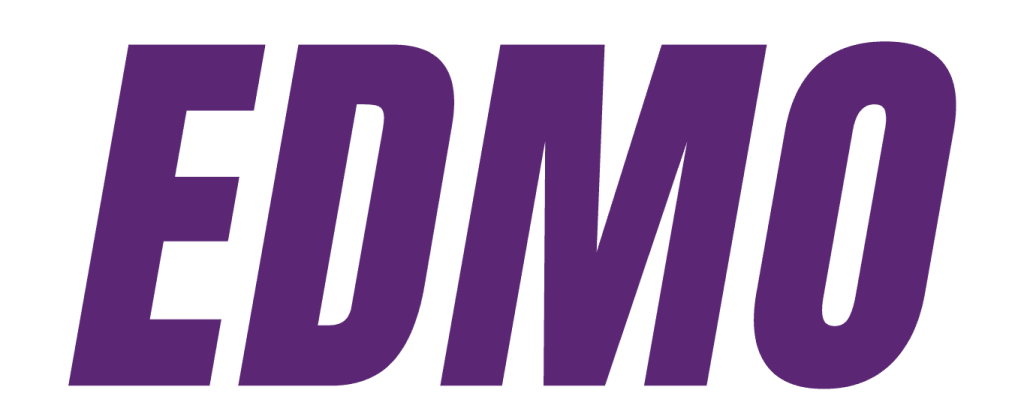

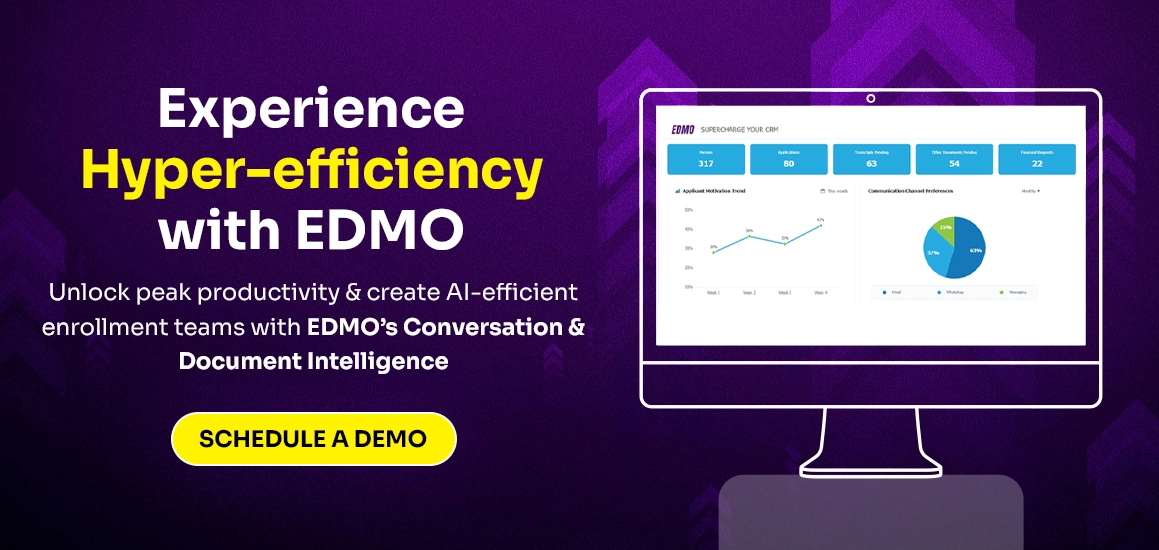





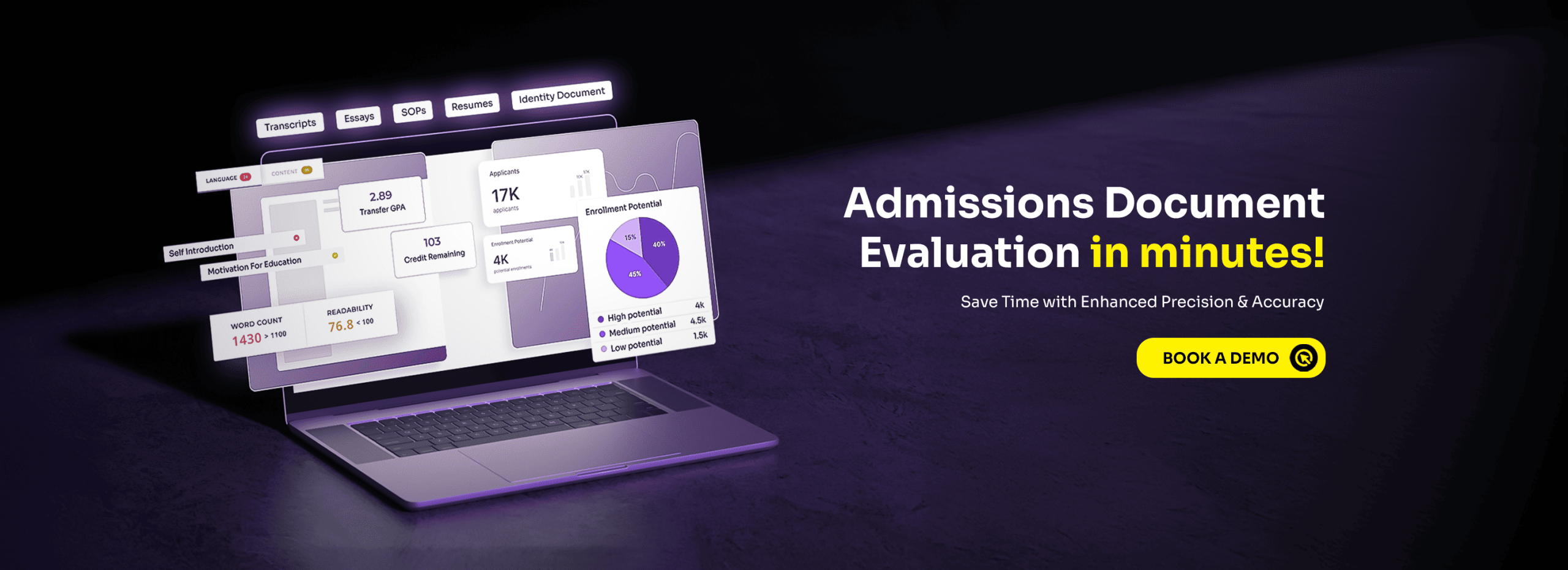
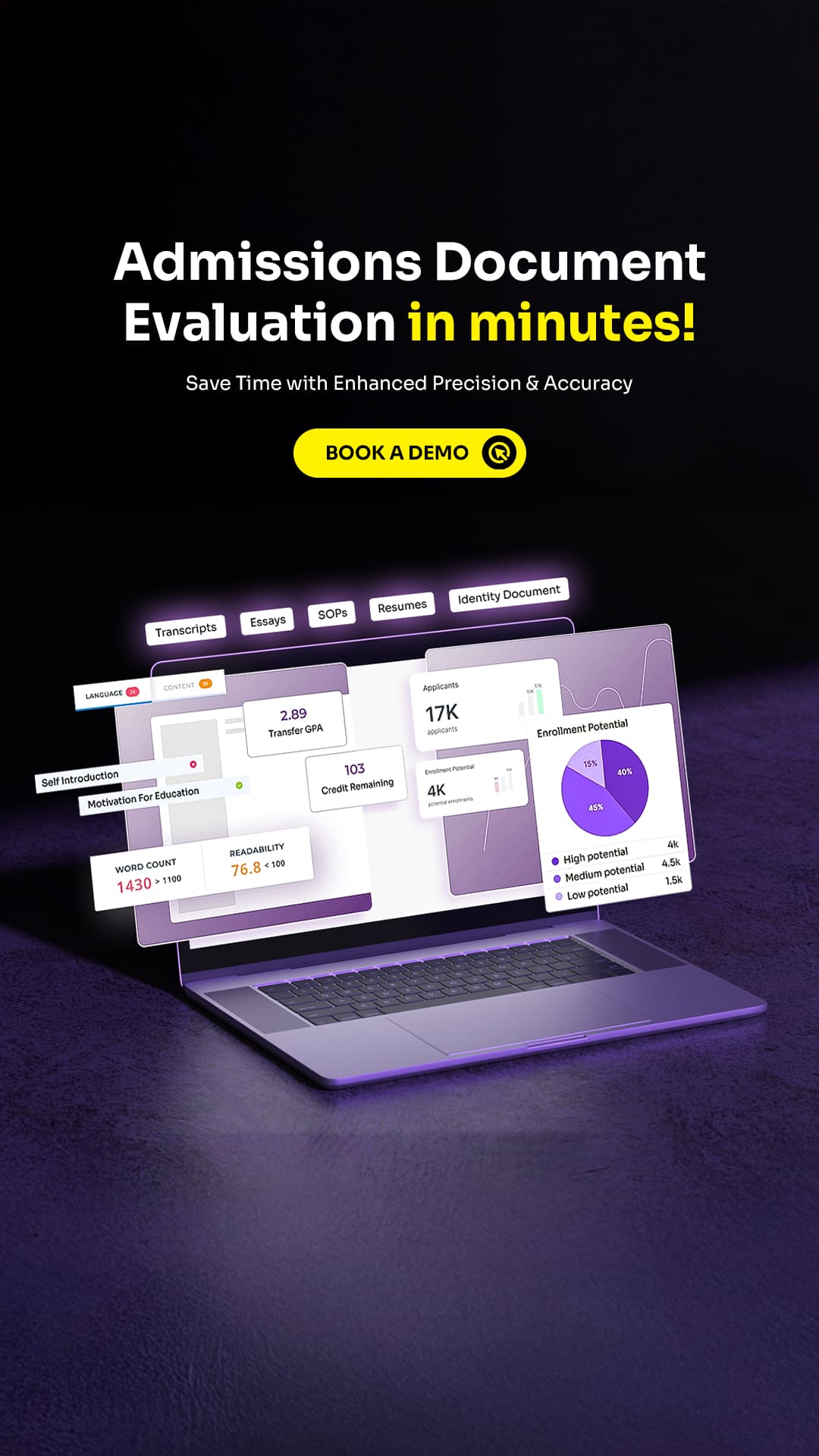
No comments yet. Be the first to comment!
Leave a Comment